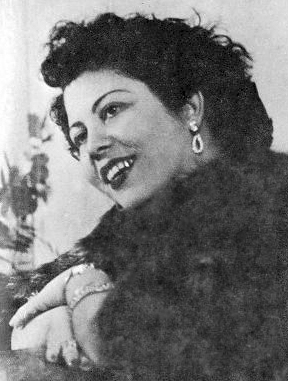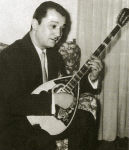
The bouzouki is a musical instrument popular in Greece. It is a member of the long-necked lute family, with a round body with a flat top and a long neck with a fretted fingerboard. It has steel strings and is played with a plectrum producing a sharp metallic sound, reminiscent of a mandolin but pitched lower. It is the precursor to the Irish bouzouki, an instrument derived from the Greek bouzouki that is popular in Celtic, English, and North American folk music. There are two main types of Greek bouzouki: the trichordo (three-course) has three pairs of strings and the tetrachordo (four-course) has four pairs of strings. The instrument was brought to Greece in the early 1900s by Greek refugees from Anatolia, and quickly became the central instrument to the rebetiko genre and its music branches. It is now an important element of modern Laïko pop Greek music.
The music of Greece is as diverse and celebrated as its history. Greek music separates into two parts: Greek traditional music and Byzantine music. These compositions have existed for millennia: they originated in the Byzantine period and Greek antiquity; there is a continuous development which appears in the language, the rhythm, the structure and the melody. Music is a significant aspect of Hellenic culture, both within Greece and in the diaspora.

Stelios Kazantzidis was one of the most prominent Greek singers. He was of Pontian and Asia Minor roots. A leading singer of Greek popular music, or Laïkó, he collaborated with many of Greece's foremost composers.

Kyriaki Papadopoulou, known by her stage name Marinella, is a Greek singer whose career has spanned several decades. Since the beginning of her professional singing career in 1957, she has released 66 solo albums, and has also been featured on many albums by other musicians. She is well regarded due to her impressive vocal range.

Vassilis Tsitsanis was a Greek songwriter and bouzouki player. He became one of the leading Greek composers of his time and is widely regarded as one of the founders of modern Rebetiko and Laiko music. Tsitsanis wrote more than 500 songs and is still remembered as an extraordinary composer and bouzouki player.

Rebetiko, plural rebetika, occasionally transliterated as rembetiko or rebetico, is a term used today to designate originally disparate kinds of urban Greek music which in the 1930s went through a process of musical syncretism and developed into a more distinctive musical genre. Rebetiko briefly can be described as the urban popular song of the Greeks, especially the poorest, from the late 19th century to the 1950s, and served as the basis for further developments in popular Greek music. The music, which was partly forgotten, was rediscoved during the so-called rebetika revival, which started in the 1960s and developed further from the early 1970s onwards.

Markos Vamvakaris, was a rebetiko musician. He is universally referred to by rebetiko writers and fans simply by his first name, Markos. The great significance of Vamvakaris for the rebetiko is also reflected by his nickname: the "patriarch of the rebetiko".
Iovan Tsaous (1893–1942), was a Greek musician and composer of rebetiko songs from Pontus. His real name was Yiannis Eitziridis or Etseiridis. He played the saz.

Marika Ninou was an Armenian-Greek rebetiko singer.

Apostolos Nikolaidis was a Greek singer whose career spanned four decades. He was born in Drama, Greece and grew up in Thessaloniki. He is best known for being the first Greek artist to record or re-record the authentic, "prohibited" rebetika songs in the early 1970s with their original lyrics at a time when this type of music was censored in Greece due to the military junta of 1967–1974 in power.
Skiladiko or SkyladikoGreek pronunciation:[sciˈlaðiko],, is a derogatory term to describe a branch of laiko music and some of the current nightclubs in Greece in which this music is performed. It also refers to the so-called "decadent" form of laiko, and is derived from the Greek for dog, meaning "doggish" or "doghouse". The term was also used to refer to cheap or often unlicensed Greek night clubs with a usually shady reputation of Greek music on the outskirts of a Greek city or town. The typical arrangement in current skiladika establishments includes an elevated stage ("palco") where singers and musicians perform Greek songs, with the use of heavily amplified bouzouki, electric guitars and other instruments.

Sotiria Bellou was a Greek singer and performer of the rebetiko style of music. She was one of the most famous rebetisa of all, mentioned in many music guides, and a contributor to the 1984 British Documentary entitled Music of the Outsiders. On March 14, 2010, Alpha TV ranked Bellou the 22nd top-certified female artist in the nation's phonographic era.
Éntekhno is orchestral music with elements from Greek folk rhythm and melody. Its lyrical themes are often based on the work of famous Greek poets. Éntekhno arose in the late 1950s, drawing on rebetiko's westernization by Vassilis Tsitsanis and Manolis Chiotis. Mikis Theodorakis and Manos Hatzidakis were the most popular early composers of éntekhno song cycles.
Vangelis Trigas is a Greek virtuoso soloist and master of the bouzouki.
Manolis is a Greek masculine given name, which is sometimes a contraction of Emmanouil. It may refer to:

Anestis Delias was a Greek bouzouki player, composer and singer of rebetiko. Delias was from a musical family of Smyrna in Anatolia, who arrived on the Greek mainland as a young refugee during the Greco-Turkish war. He became an accomplished player of the bouzouki and joined with other musicians in the refugee suburbs of Athens and Piraeus, creating music in the 1930s that exemplifies the genre known as Piraeus rebetiko. Delias played on early rebetiko recordings, including songs of his own composition released under his name. He became addicted to heroin and died of starvation, aggravated by his drug dependency, during the Nazi occupation of Greece. Despite his short life, Anestis Delias was an important figure and an influential exponent of the Piraeus-style of rebetiko.
Giorgos Mitsakis was a Greek composer and lyricist of numerous rebetika and folk songs, as well as a skillful bouzouki player. He was also known by the nickname the teacher.
Angelo Avramakis is a Greek musician and bouzouki player. Born in Serres, Greece, he has spent most of his life in Australia. He is considered the leading bouzouki player in Australia and among the top bouzouki players in the world.

Manolis Mitsias is a Greek singer. He has been a significant artistic presence in the laïko, light laïko and entekhno genres of modern Greek music.











